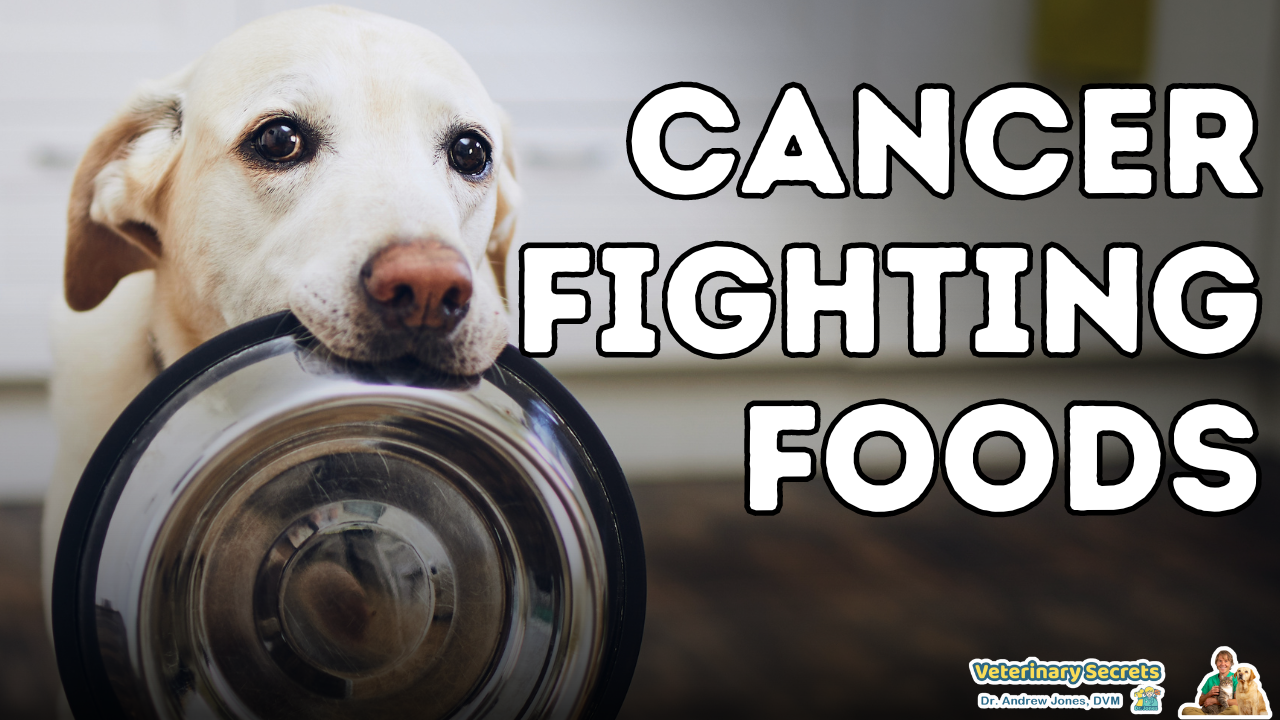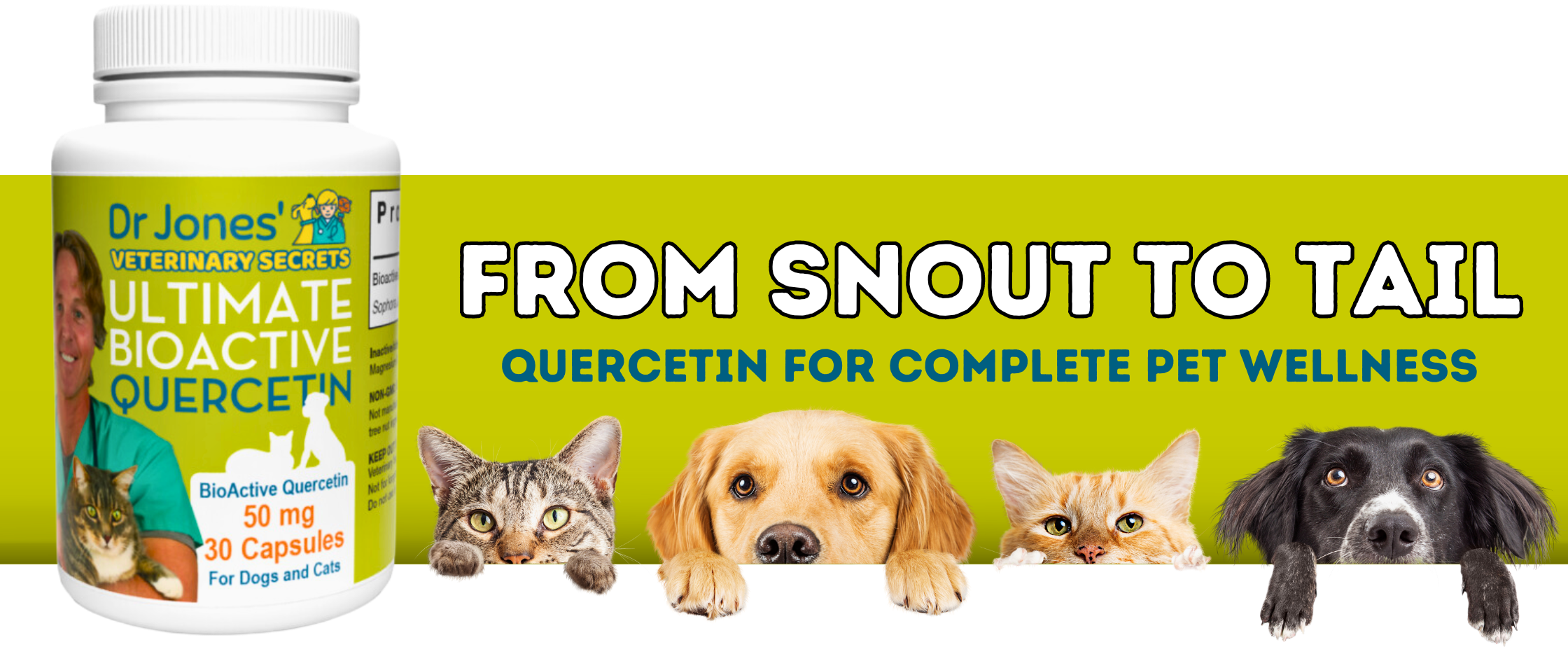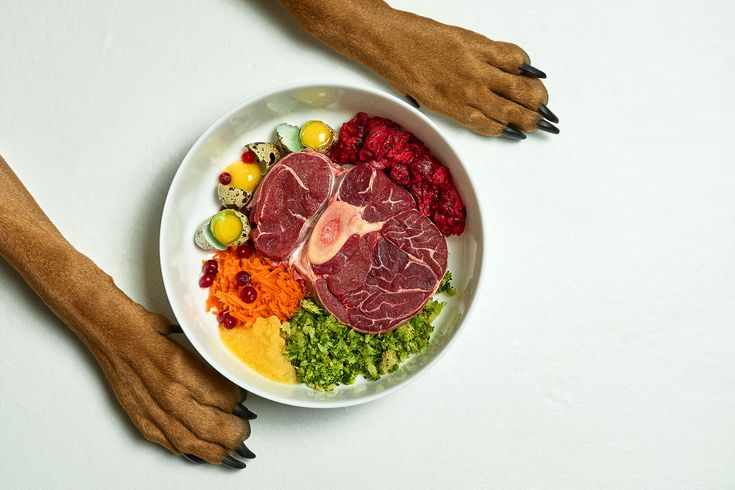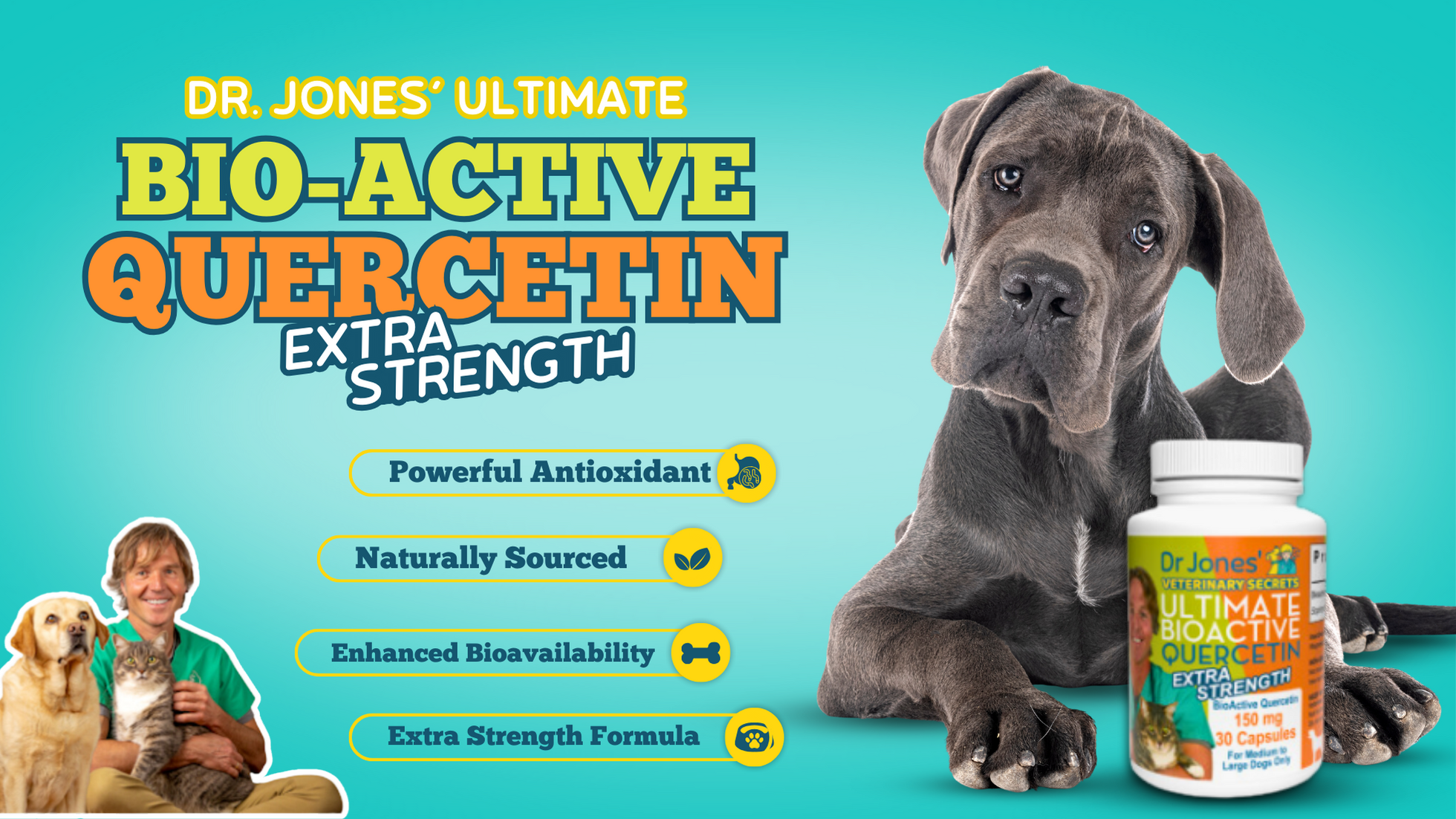Cancer fighting human foods good for dogs!

Of ALL the things that you can do to prevent cancer in your dog or cat, diet is clearly the most important.
In part you want the diet to include beneficial nutrients that have anti-cancer properties, such as antioxidants, flavanoids, essential fatty acids, etc… .
Unfortunately many of the Pet Foods are highly processed, losing the beneficial nutrients.
What CAN you do?
Well you can make your pet’s food, or purchase some rather expensive minimally processed food.
As an alternative option, you could consider adding in a flavanoid supplement, which has also been very helpful for pets with allergies. It’s the flavanoid isolated from apple peel, Quercetin. It’s here:
Dr Jones’ ULTIMATE Bioactive QuercetinDr Jones’ EXTRA STRENGTH Bioactive Quercetin


P.S. There are many ways to potentially prevent cancer in your dog or cat, and diet is just part of the plan. Sometimes it’s out of our control, but ALL you can do is feed your pet well, and decrease carcinogen exposure (ie to insecticides, pet food toxins etc…)
Adding an a beneficial flavanoid supplement may help, and this is a no brainer if you are also dealing with an allergic pet. It’s the flavanoid isolated from apple peel, Quercetin. It’s here:
Dr Jones’ EXTRA STRENGTH Bioactive Quercetin

P.P.S. I get more questions about Cancer, than virtually any other veterinary condition, so I expect this webinar will fill up fast. (it’s tomorrow at 5PM Pacific, 8PM Eastern)
